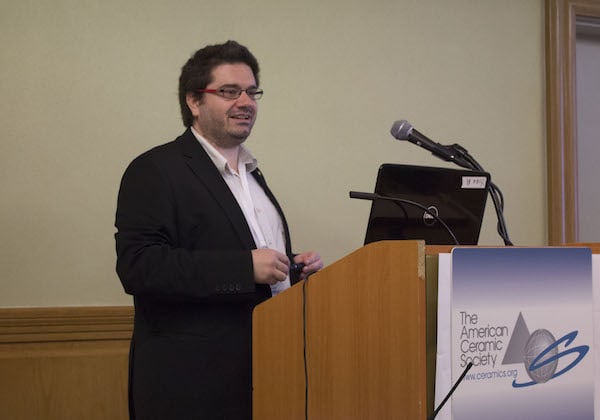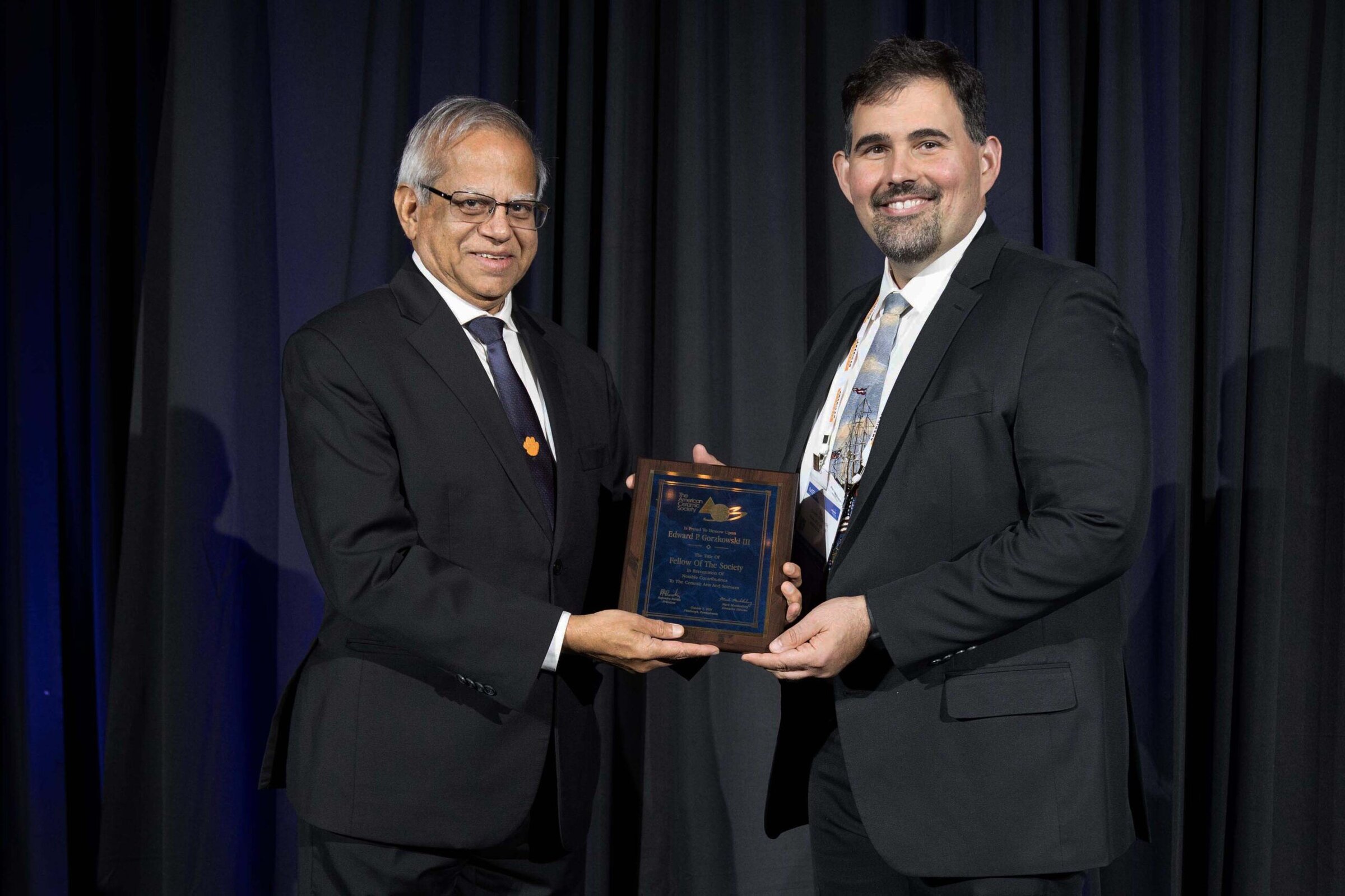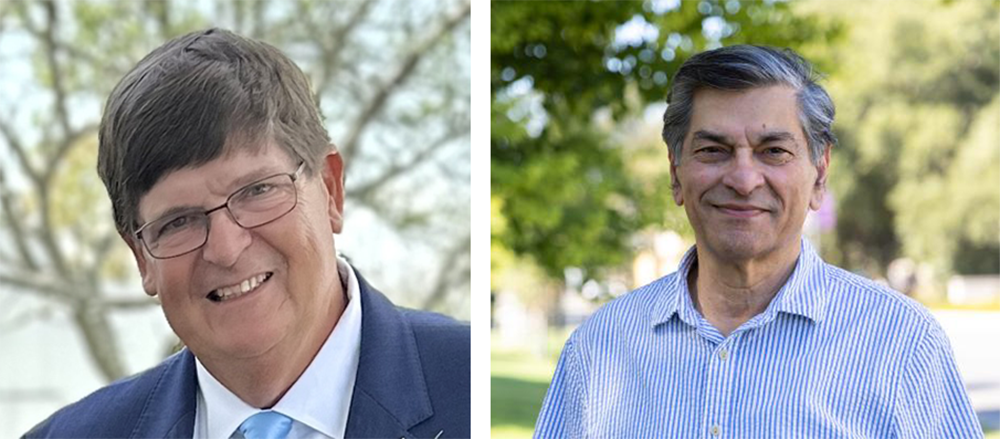
[Image above] Federico Rosei offered career tips and advice for young scientists at a lunch session sponsored by Saint-Gobain at HTCMC in Toronto. Rosei is director, INRS–EMT, Univ. du Québec, Varennes, Canada. Credit: ACerS
Student report by Rabih Mansour, The University of Akron
An engineering student crosses a road when a frog calls out to him, “If you kiss me, I’ll turn into a beautiful princess.” The student walks over to the frog, and looks at it. The frog says again “Just kiss me, I’ll turn into a gorgeous girl and I’ll be yours.” The student picks up the frog and put it in his bag and continues walking. The frog goes crazy and starts yelling, “Why won’t you kiss me?!” The student looks at the frog and says, “Listen! I’m a graduate student. I don’t have time for a girlfriend. But a talking frog? Now that’s cool!”
This was one of many funny jokes and profound stories told by Dr. Federico Rosei during his seminar on “Survival Skills for Scientists.” His interactive session was a great way of delivering points on how students and young professionals can manage their careers, and, to a certain degree, their lives.
The three main points in Rosei’s seminar were, know thy self, find a mentor, and plan ahead.
People choose a career in science for all kinds of reasons, but scientists should not forget to enjoy the journey while reaching for their goals. Being a scientist is not easy sometimes—proposals get rejected, experiments do not work, and competition intensifies. So when things get tough we need to remember our personal goals and look at the bigger picture: scientists change the world and advance humanity.
A mentor, as Rosei defines the term, is a person who can provide an objective measure of reality, especially when faced with a critical decision. A mentor also does not have conflict of interest with you. Choosing a mentor early in one’s career could be a great resource and most always results in a lifelong friendship.
Rosei then moved on to the importance of planning to capitalize on opportunities as they occur. Plans should always be kept flexible. Building opportunities take years of planning in all forms: short, medium, and long term.
The rest of the seminar was spent on various practical advice. Dealing with rejection was one of them. Fear of rejection should never be a hindering reason for applying and trying. After all, rejection is a part of life and we need to learn to accept it gracefully. His second piece of advice was to “know the players” and to build professional relationships/friendships with the people that are going to review and critique your work because, ultimately, anything of significance in science is peer reviewed. His talk about research ethics and different professional routes students can take after finishing graduate school was extremely beneficial. Academia, national labs, and industry are the usual routes taken after graduation. The path one plans to take should be their guiding compass during graduate school.
The first time I attended Rosei’s seminar was at the 39th ICACC in Daytona Beach, Fla. His practical advice had a strong impact on how I managed my graduate studies at The University of Akron from that point forward. I was glad that I got to listen to his seminar again toward the end of my Ph.D. journey—a journey that I was fortunate to spend in the exciting world of ceramics under the advisement of Dr. Gregory Morscher.

Survival Skills for Young Scientists seminar at HTCMC, GFMAT. Credit: ACerS
Author
Rabih Mansour
Spotlight Categories
- Meeting Highlights


